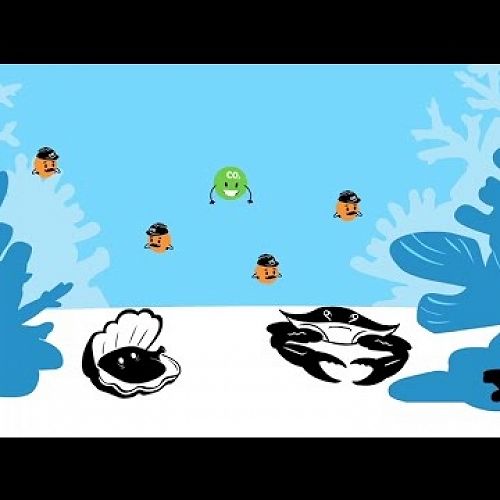How Much Plastic Waste Do We Create
Investigate how much plastic waste we really create from day to day and how we can go about reducing this.
Visit this article
Climate change is now affecting every country on every continent.
It is disrupting national economies and affecting lives, costing people, communities and countries dearly today and even more tomorrow.
People are experiencing the significant impacts of climate change, which include changing weather patterns, rising sea level, and more extreme weather events. The greenhouse gas emissions from human activities are driving climate change and continue to rise. They are now at their highest levels in history.
Without action, the world’s average surface temperature is projected to rise over the 21st century and is likely to surpass 3 degrees Celsius this century - with some areas of the world expected to warm even more. The poorest and most vulnerable people are being affected the most.
Affordable, scalable solutions are now available to enable countries to leapfrog to cleaner, more resilient economies. The pace of change is quickening as more people are turning to renewable energy and a range of other measures that will reduce emissions and increase adaptation efforts.
But climate change is a global challenge that does not respect national borders. Emissions anywhere affect people everywhere. It is an issue that requires solutions that need to be coordinated at the international level and it requires international cooperation to help developing countries move toward a low-carbon economy.

Investigate how much plastic waste we really create from day to day and how we can go about reducing this.
Visit this article
What is ocean acidification and why are humans held accountable? How is it affecting the health of our planet, especially eco-systems in the ocean?
Visit this article
From 1880 to 2012 the average global temperature increased by 0.85°C. Given current concentrations and on-going emissions of greenhouse gases, it is likely that by the end of this century the increase in global temperature will exceed 1.5°C.
Visit this article
“An error does not become a mistake until you refuse to correct it.” Learn what deforestation means. Why does society continue to destruct natural resources and what is happening as a result?
Visit this article
Create a presentation about aquatic eco-systems to inspire and educate people in your community. Explain why sustaining ecosystems is important to the survival of our world.
Visit this article
Create a presentation in groups that tells the class how and why species of animals in wildlife are dying out.
Visit this article
Create a presentation showing leaders throughout the world why we need to place importance towards preventing endangered animals ceasing to exist.
Visit this article
Most of you will understand social media as apps to share your photos, videos and personal messages with others. Explain why campaigns for equality are significantly impacted by the power to reach a global audience through social media.
Visit this article
Learn why fossil fuels are so bad for our world. Investigate ways to generate clean energy and how society can replace fossil fuels.
Visit this article
Why are some specifies' in danger and what causes this? Study a particular type of endangered species and investigate the reasons behind what causes them to be at risk.
Visit this article
Your challenge is look at the topic of sustainable agriculture and ask; “why is it so important that the food we produce is made with environmentally friendly practices? Why are chemical fertilisers bad for us and the planet? What alternatives are there? What is the future of sustainable agriculture?”
Visit this article
What is natural heritage and why do we need to work hard to preserve it?
Visit this article
Why do cities need to be adapted and made to support the environment?
Visit this article
Investigate the environmental and financial impact of food wastage in our own homes and communities and what we can do to reduce the amount we waste.
Visit this article
Investigate the impact of food wastage on a global scale on our planet and economies and how big industries and governments could help reduce the wastage.
Visit this article
What is an enterprise? What makes it 'social'? Discover why social enterprises are shaping the business industry and changing our world for the better.
Visit this article
Learn how a new Kiwi company has found a way to create meat without using animals!
Visit this article